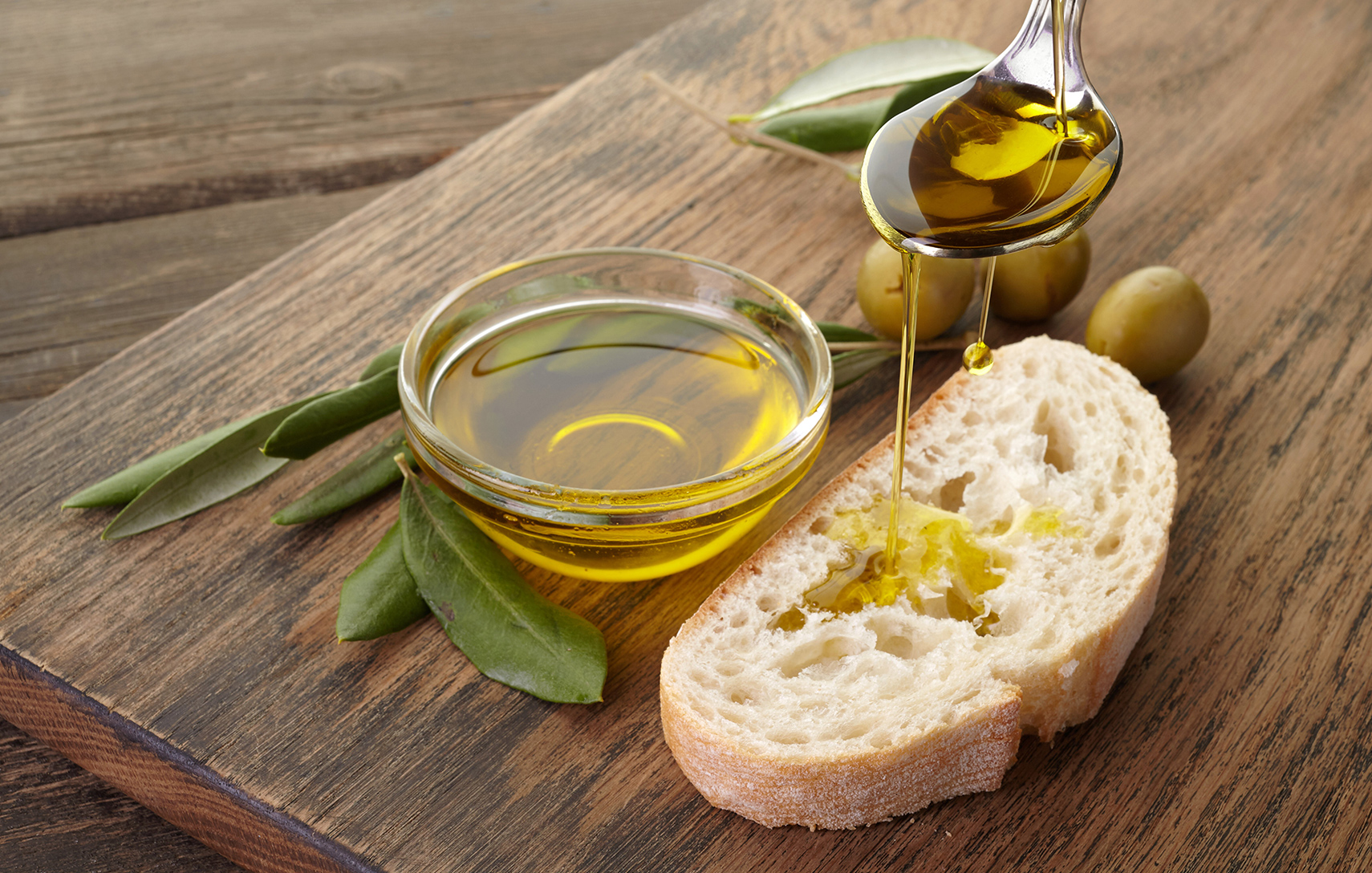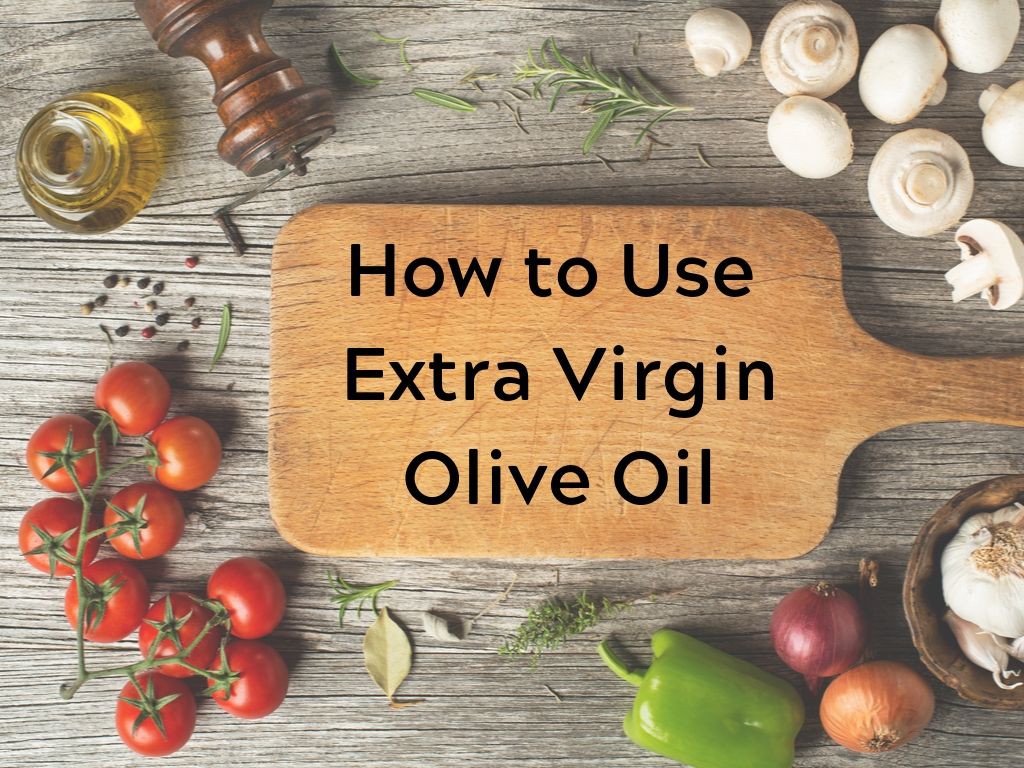Unlock the Hidden Extra Virgin Olive Oil Benefits for Weight Loss
Unlock the Hidden Extra Virgin Olive Oil Benefits for Weight Loss
Blog Article
Checking Out the Different Sorts Of Olive Oil and Their Usages, Consisting Of Bonus Virgin Olive Oil
The exploration of olive oil includes a diverse variety of kinds, each offering unique tastes and culinary applications. Additional virgin olive oil, renowned for its premium quality and wellness advantages, serves as a staple in lots of kitchens, yet it is only one element of this multifaceted component. extra virgin olive oil benefits. Various other ranges, such as pure and refined olive oils, also call for focus for their special buildings and uses. Recognizing these differences can considerably affect both food preparation strategies and taste accounts. What, after that, should one consider when picking the appropriate olive oil for a certain cooking undertaking?
What Is Olive Oil?
Originated from the fruit of the olive tree, olive oil is a staple in Mediterranean food and a vital active ingredient in numerous culinary applications. This versatile oil is generated by pushing whole olives, resulting in a fluid that varies in color, taste, and fragrance depending upon the kind of olives utilized, the area of farming, and the extraction process. Olive oil is primarily composed of monounsaturated fats, particularly oleic acid, which is recognized for its prospective health and wellness advantages, consisting of anti-inflammatory residential or commercial properties and cardio assistance.
Along with its culinary usages, olive oil has a long history of application in typical medication and skin care, owing to its rich antioxidant content (extra virgin olive oil benefits). The oil is usually made use of in dressings, sauces, and for cooking approaches such as sautéing and roasting. Its distinct flavor account can improve the preference of numerous dishes, making it a necessary component for both home cooks and professional cooks
Moreover, olive oil is celebrated for its function in the Mediterranean diet regimen, which is connected with numerous health and wellness advantages. As recognition of these benefits expands, olive oil proceeds to obtain appeal worldwide as an essential component of a healthy and balanced way of living.
Sorts Of Olive Oil
Recognizing the numerous types of olive oil is crucial for both cooking fanatics and health-conscious customers. Olive oil is categorized mostly based on its removal method and high quality, which substantially affects its wellness, taste, and scent benefits.

Light olive oil, in spite of its name, describes a lighter flavor and not reduced calories. It is optimal for those looking for a more refined preference in marinades and dressings. In addition, there are flavorful olive oils infused with herbs, spices, or citrus, which can enhance recipes without the need for added flavoring.
Each sort of olive oil serves certain cooking objectives, and recognizing these differences allows customers to make enlightened options that align with their food preparation designs and health and wellness objectives.
Extra Virgin Olive Oil
Additional virgin olive oil (EVOO) is commonly considered the finest olive oil available, celebrated for its rich flavor and various health and wellness advantages. To be identified as added virgin, the oil has to be produced from fresh olives using mechanical procedures, without using solvents or excessive warm. This meticulous approach protects the oil's all-natural tastes, antioxidants, and healthy fats, resulting in a anonymous product with a reduced acidity level of less than 0.8%.
EVOO is plentiful in monounsaturated fats, especially oleic acid, which is connected to reduced inflammation and enhanced heart wellness. It likewise contains polyphenols, effective anti-oxidants that may offer protective impacts against persistent illness. The taste profile of EVOO can vary dramatically depending upon the olive range and region of manufacturing, varying from verdant and fruity to robust and sharp.

Culinary Uses of Olive Oil

In cooking, olive oil can be utilized for sautéing, roasting, and barbecuing, offering a much healthier alternative to butter or various other fats. Its high smoke point makes it ideal for various cooking methods, while its antioxidants contribute to a heart-healthy diet plan. Sprinkling olive oil over finished meals, such you could check here as pasta, fish, or grilled vegetables, can elevate flavors and include a touch of beauty.
Additionally, olive oil plays a significant function in cooking, where it can change typical fats in dishes for bread and pastries, passing on dampness and a subtle preference. It additionally offers as a base for infused oils, enabling chefs to experiment with tastes such as garlic, herbs, or chili, even more broadening its culinary potential. On the whole, olive oil's versatility makes it crucial in both home and specialist cooking areas.
Picking Top Quality Olive Oil
When choosing top quality olive oil, it's necessary to think about a number of key elements that influence the product's scent, flavor, and wellness advantages. First and primary, choose additional virgin olive oil (EVOO), which is originated from the first cold pressing of olives and contains the greatest levels of anti-oxidants and advantageous compounds. Seek oils that are certified by acknowledged organizations, as this commonly makes sure adherence to rigorous quality standards.
The product packaging also plays a significant role in maintaining the oil's honesty. Select oils stored in dark glass containers or tins to safeguard versus light degradation. Take note of the harvest date; fresher oils offer superior taste and dietary value, so choose products that are within 18 months of their harvest.
Be aware of the taste; a good high quality olive oil must have an equilibrium of fruity, bitter, and peppery notes, suggesting its richness and complexity. By reviewing these variables, you can guarantee you are choosing the finest olive oil for your cooking demands.
Verdict
In recap, the exploration of numerous kinds of olive oil reveals distinct qualities and applications, with added virgin olive oil representing the pinnacle of top quality due to its low acidity and high antioxidant material. Understanding the different varieties of olive oil permits for informed choices right here in cooking techniques, advertising much healthier practices while improving the total gastronomic experience.
Obtained from the fruit of the olive tree, olive oil is a staple in Mediterranean cuisine and an essential component in various culinary applications.The most usual types of olive oil include fine-tuned olive oil, pure olive oil, and light olive oil.Extra virgin olive oil (EVOO) is extensively related to as the highest top quality olive oil readily available, well known for its abundant flavor and countless health and wellness benefits. Opt for added virgin olive oil (EVOO), which is derived from the first cold pushing of olives and consists of the highest possible degrees of anti-oxidants and beneficial compounds.In recap, the exploration of different kinds of olive oil reveals unique features and applications, with additional virgin olive oil representing the pinnacle of top quality due to its reduced acidity and high antioxidant material.
Report this page